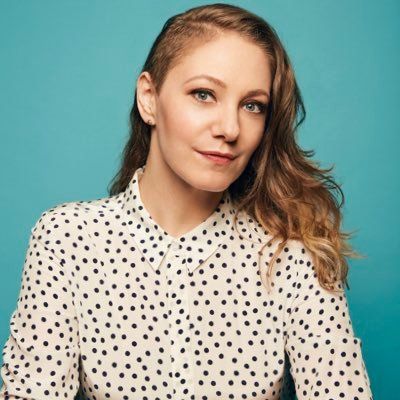
Emily Gordan Wants to Know: What's Keeping You From Writing?
This article originally appeared on Seed&Spark.
If there’s anything a writer knows all too well, it’s the feeling of reaching a dead end—unable to break through the mental roadblocks that keep the story from reaching the page. These barriers are often of our own making, created by way of excuses to get out of doing the dirty work. Other times this is a subconscious manifestation of something deeper and more difficult to acknowledge and accept. In our July 10th Creative Sustainability Session, Oscar-nominated screenwriter and former therapist Emily V. Gordon sat down with friends and fellow writers Jen Richards and Naomi Ekperigin to get down to the bottom of what keeps them—and all of us—from writing.
Before you can even dissect what’s keeping you from writing, it’s good to be able to answer the question: what is your writing process? For Naomi, a great idea is met with self-doubt until it becomes physically uncomfortable to ignore. Then she reminds herself, “the only way I'll feel better is if I just write something, anything. That doesn't mean it's all good, but I can get out a trash draft pretty quickly once I accept the call to be the slayer.”
Jen’s process is a bit more of a ritual, devoting time to write three pages every morning to “keep that channel open between whatever's up there in your head and your hand.” One of the most beautiful metaphors in this session (and there are many!) is when Jen likens her craft to building a church and said that her practice is showing up every day: “Morning pages are coming and opening the church doors and dusting the pews and making sure everything is ready. It doesn't mean God shows up, God might only show up a couple times a year, but if I'm not there every day, holding that space, I'm gonna miss it when she does show up.” Hell yeah.
Emily recommends keeping “office hours” in a distraction-free environment dedicated to writing only, recalling, “I always had to have a corner [that] was like my writing corner and my laptop would go there and when I was in that corner, the only thing I could be doing was writing. I had to train myself that when I'm sitting at this laptop in this spot, it means I'm writing.” Remove the opportunity to get out of writing by carving out the time to do it regularly.
Emily directs the conversation toward a less pleasant topic: what are our excuses for not writing? Here are some of our (least) favorites and the responses you can give to that little voice in your head:
- “I haven’t done enough research yet.”—Emily’s response? “You definitely have.”
- “It has to be perfect or don’t bother.”—Naomi says, “It's not about perfection, it’s really not. In fact the more mediocre, the better.”
- “I have to fix this part before I can move on.”—Keep it moving. “If you don't get to the end of the thing, it's never a thing,” says Emily.
- “I've got an even better idea. And isn't that so much sexier and more fun to think about than this idea I'm currently working on?”—Acknowledge that the reason why it’s sexier to think about it is that it's not complicated yet.
Expanding on some of the deeper causes of what gets in our way when we’re trying to write, Naomi hits the nail on the head with something that resonates for so many of us: “I always compare it to that feeling that my skill does not match my dream ... that's what’s so scary or that's the part that's so hard to grapple with. I may have a big idea, but I may not have the skill to realize that idea.” Fear of being judged, imposter syndrome, the anxiety of not knowing what you’re doing or not being perfect—these are all the elements of self-doubt that Emily attributes to what really keeps us from writing: “I'm scared this is not gonna be good and people will know I'm not good.”
Once you’ve identified the underlying causes for why you can’t write, remembering why you are called to write can help you get out of that rut. “The love of telling stories ... that's what you bring. Nobody else can bring that to a table other than you,” Emily offered. When reflecting on her passion for writing, Jen shared, “It's physically painful, it hurts my relationship, it hurts my body, it hurts my mind, it hurts everything. And it's just ... I can't not do it.”
Ultimately, you have to love being a writer. If you love being a writer, you have to write. There will always be something getting in your way but you can’t let it stop you. When you find yourself in these moments, channel Naomi and accept the call to be the slayer.
To catch more amazing gems from Emily, Jen, and Naomi, watch the full livestream conversation with a Q&A portion to get out of your head and onto the page.
Need a hand with crowdfunding strategies? Seed&Spark offers a free 30-minute consultation.
Author: Dani Thomas is an actor, singer/songwriter and Seed&Spark's Digital Storyteller. She is a frequent collaborator with CongestedCat Productions, most recently acting in the short comedy Game Brunch. She is also a co-host of CongestedCat's monthly screening series, IndieWorks. When she's not live-tweeting episodes of BravoTV programming, she can be found practicing guitar and enjoying the best that lazy weekend days have to offer with her partner, Kelsey, and their pitbull pup, Tino.
*Featured Image: Emily Gordon / Twitter